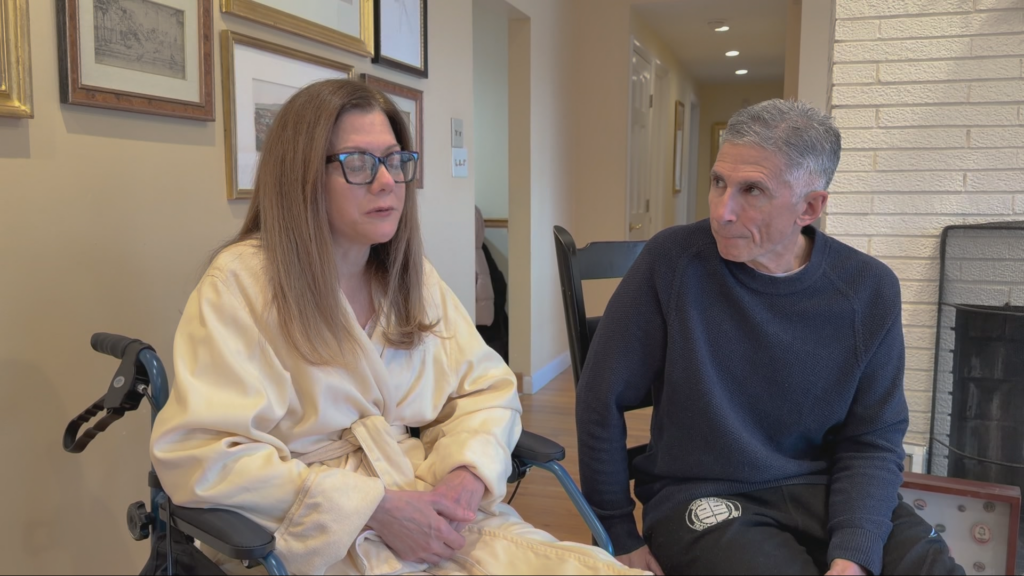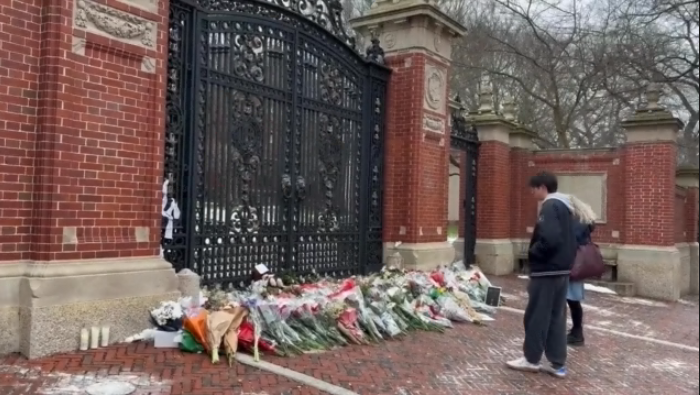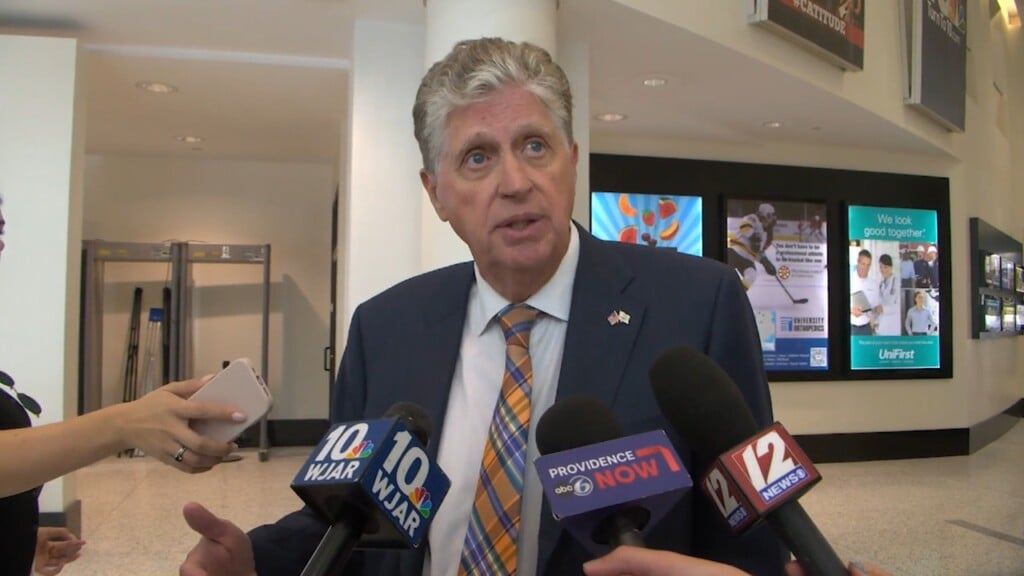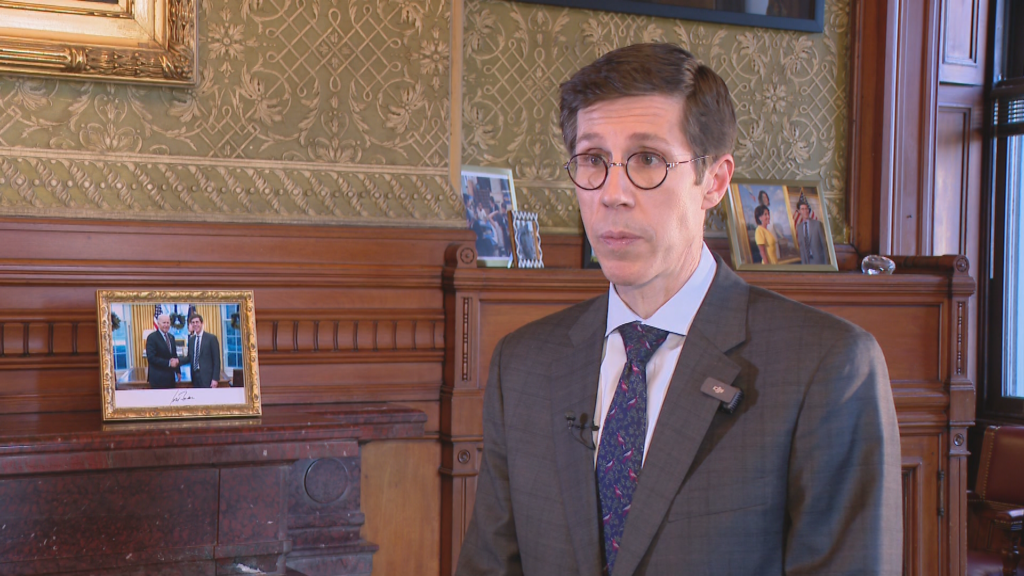Gov. McKee announces actions to address COVID-19
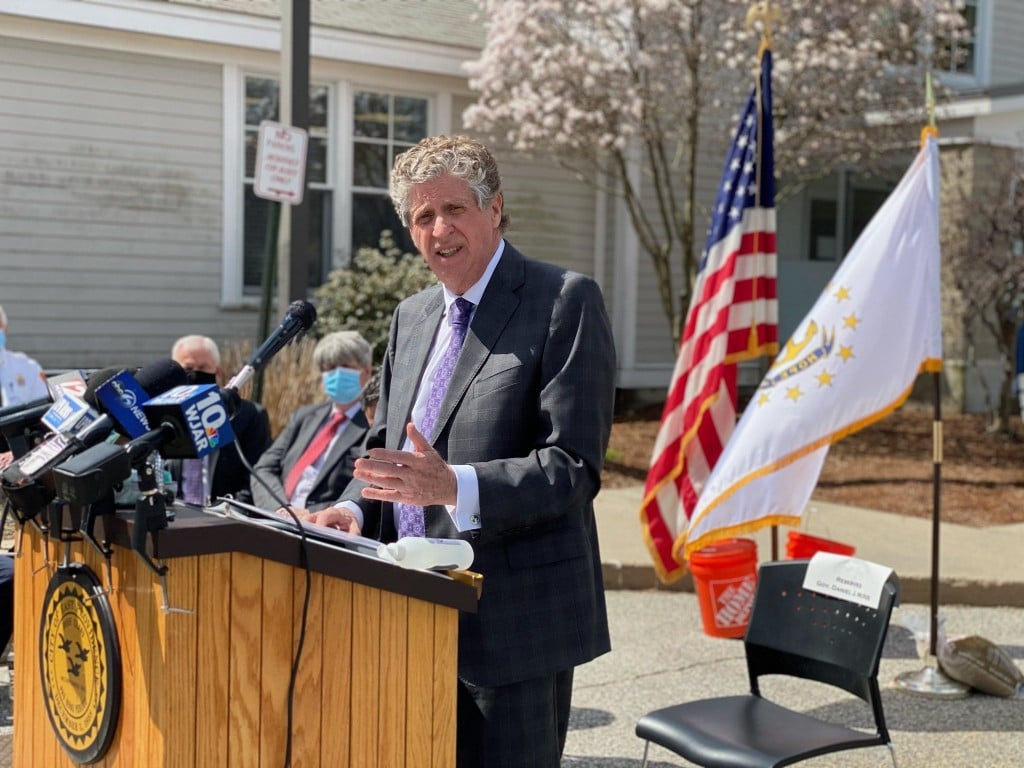
PROVIDENCE, R.I. (WLNE) – Governor Dan McKee alongside the Rhode Island Department of Health, representatives of the medical community, members of the small business community, the State’s whole of government COVID-19 response team, and Lt. Governor Sabina Matos, announced actions to address the increase in COVID-19 cases and lower pressure on our hospitals, keeping schools open for in-school learning, and preventing economic disruption.
“The health and safety of Rhode Islanders must always be our top priority,” said Governor McKee. “The comprehensive actions that my Administration is announcing today focus on what we know works to stop the spread of COVID-19 and alleviate pressures on our hospital systems. I want to thank all the Rhode Islanders who have stepped up to get vaccinated — and I’m now urging you to get your booster shot.”
“The comprehensive set of actions that the Governor announced today focus on the tools that will get us through this surge in cases and help alleviate capacity issues and stress on our health care systems,” said Director of Health Nicole Alexander-Scott, MD, MPH. “Masks are effective at limiting the spread of COVID-19, and getting your primary vaccine series and your booster dose makes it much less likely that you will get seriously ill from COVID-19. There are dozens of vaccination opportunities all throughout Rhode Island every day. If you have gotten your primary series or your booster dose, get vaccinated today.”
The Governor announced there will be temporary measures put into place as people spend more time indoors during the holidays. The measures fall into three categories involving both masking and proof of vaccination. These measures will begin December 20.
All venues with 250 people or more will require masking regardless of vaccination status. This applies to all recreational and entertainment establishments, historical, cultural, religious and faith-based organization, and all retail and business services including inside indoor venues.
Venues under the 250 capacity limit can decide between vaccination requirement, indoor mask requirements, or where vaccination may be shown or a mask may be worn.
Governor McKee will also be improving the state’s testing strategy. The state will distribute 100,000 at-home rapid tests over the next two weeks. Health Equity Zones and community partners will support distribution to patients. With this strategy, Rhode Island will be able to test 10% of its population. McKee also requested another 1 million from the Federal Emergency Management Agency to help reduce COVID-19 PCR test result times.
The Test to Stay initiative will also be expanded upon. The Test to Stay program allows students to get tested each day before school. This helps other children stay in school and reduce interruptions to learning.
Governor McKee also sent a letter to FEMA Administrator Deanne Criswell asking for more medical staff for Rhode Island medical centers. He has also begun to form the Governor’s Working Group on Health Care Staffing Capacity. The group will be made of state and private leaders in healthcare and the workforce. Their focus will be fixing Rhode Island’s medical care staffing situation. They will hold their first meeting next week.
“Care New England fully supports Governor Daniel McKee’s newly unveiled COVID-19 protocols that will directly address the issue of community spread, during the pandemic. Care New England, as other health systems throughout the state, is dedicated to treating patients, and in many cases, saving lives. We must do everything within our power to mitigate the spread and keep Rhode Islanders healthy this winter, as we see COVID-19 infection rates and hospitalizations rise,” said James E. Fanale, MD, President and CEO, Care New England Health System.
“These actions are greatly welcomed and needed. The pandemic has driven burnout among healthcare workers to crisis levels. The situation in our hospitals remains extremely difficult — we have far fewer healthcare workers to care for patients than we did even a year ago. Many patients are presenting with more acute illnesses and conditions requiring longer inpatient hospital stays and more intensive treatment. In addition, the post-holiday rise in COVID and flu infections are putting additional pressure on our already stressed workforce. Public health measures including vaccination, masking and social distancing will help reduce the burden on the health care system and help to bring this pandemic to an end,” said Lifespan President and CEO Timothy J. Babineau, MD.
